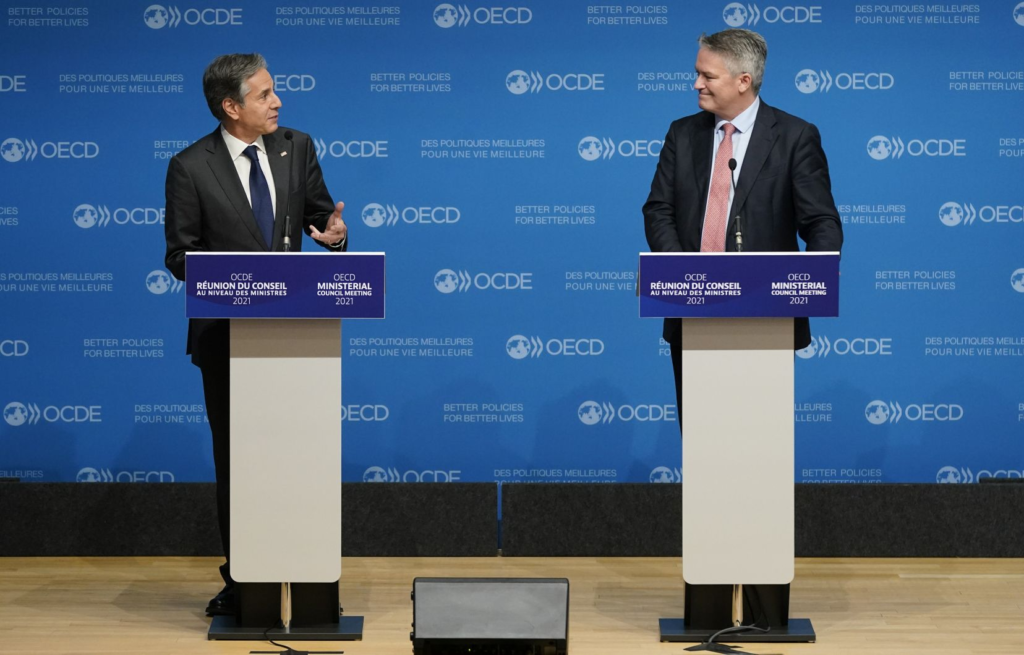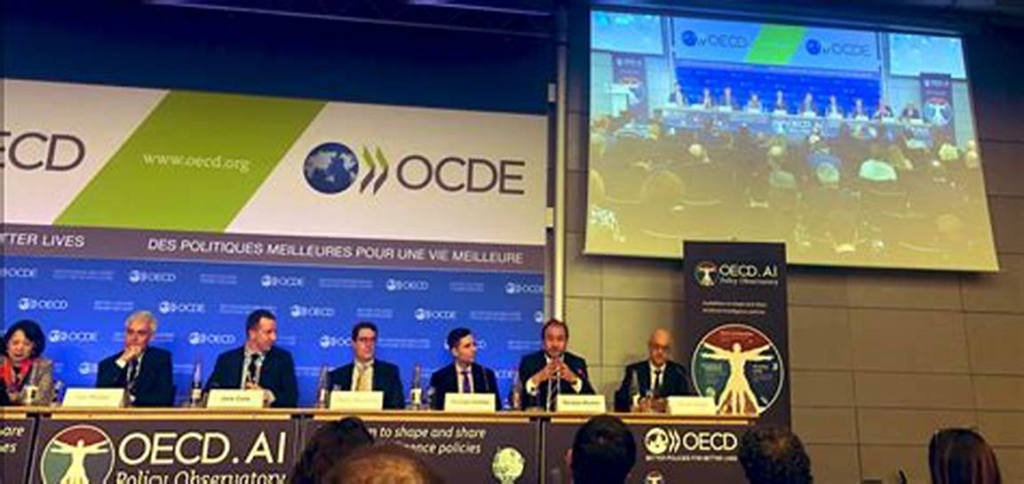Deal OECD JanuaryLoveJoy9to5Mac In today’s ever-changing digital landscape, where global organizations and online communities are constantly reshaping how we understand technology and economics, the “Deal OECD JanuaryLoveJoy9to5Mac” has emerged as a key focal point. This development has gained significant traction among tech enthusiasts, industry experts, and those keen on understanding the intersection of global economic policies and the tech world. In this article, we will explore the meaning, implications, and impact of the Deal OECD JanuaryLoveJoy9to5Mac, shedding light on why it has garnered such attention and what it means for the future of both sectors.
What is the Deal OECD JanuaryLoveJoy9to5Mac?
Deal OECD JanuaryLoveJoy9to5Mac
At the core of the Deal OECD JanuaryLoveJoy9to5Mac is an agreement between the Organization for Economic Co-operation and Development (OECD) and the tech community, particularly focusing on global economic policies and their implications on tech giants. The “JanuaryLoveJoy9to5Mac” component suggests a unique collaboration or series of events that took place in January, involving major tech companies like Apple, Google, and others who are frequently featured on tech news sites like 9to5Mac.
The deal itself is thought to cover a variety of critical issues such as international taxation, the regulation of digital services, and the global digital economy. The aim is to create a unified approach for these organizations, helping policymakers understand the global nature of digital platforms while ensuring that tax systems are modernized to capture revenues from these rapidly growing sectors.

The Role of the OECD in Global Economic Cooperation
Deal OECD JanuaryLoveJoy9to5Mac
The OECD has long been at the forefront of developing policies that promote economic stability, cooperation, and development among its member countries. In the context of the “Deal OECD JanuaryLoveJoy9to5Mac,” the organization’s role is to facilitate dialogue and provide recommendations for fair taxation and regulatory practices. This deal potentially aims to address concerns over digital tax avoidance by multinational corporations, which has been a subject of debate for years.
By collaborating with the tech industry, the OECD hopes to create frameworks that both promote innovation while also ensuring fair economic contributions from tech giants. This balance is crucial in an era where companies like Apple, Microsoft, and Amazon have become some of the wealthiest entities globally but often manage to pay minimal taxes in the countries where they operate.
Key Objectives and Benefits of the Deal
Deal OECD JanuaryLoveJoy9to5Mac
The deal itself serves multiple purposes and is poised to have far-reaching consequences for the global economy and digital landscape. Let’s break down some of its core objectives and benefits:
1. Fair Taxation of Tech Giants
A central concern with digital businesses is how they are taxed. Traditional tax systems are based on the physical presence of companies, but tech companies often operate across borders with little physical infrastructure. This creates a loophole that allows them to minimize their tax obligations. The OECD’s deal aims to develop a global digital tax system that ensures tech giants pay a fair share of taxes in the countries where they generate profits, regardless of where they have physical operations.
2. Digital Economy Regulation
With the rapid rise of digital economies, ensuring fair competition, data privacy, and consumer protection has become more challenging. The OECD’s role in the deal is to help regulate digital platforms, creating guidelines that address issues such as monopolistic practices, data privacy concerns, and the handling of consumer rights in a digital-first world. This regulation ensures that tech giants are held accountable for their practices and that users and smaller businesses are not unfairly exploited.
3. Global Economic Stability
Another critical aspect of the OECD deal is the stability it brings to the global economy. By aligning tax systems and digital service regulations across multiple countries, the deal fosters a sense of consistency and fairness. This stability benefits smaller economies and developing nations, which may otherwise be at a disadvantage when dealing with large tech corporations that have vast financial resources and lobbying power.
What Does This Mean for the Tech Community?
Deal OECD JanuaryLoveJoy9to5Mac
For the tech community, particularly those involved in major platforms like 9to5Mac, the Deal OECD JanuaryLoveJoy9to5Mac signifies an opportunity to move beyond regulatory uncertainty and achieve a more predictable and manageable environment. While the specifics of the deal may not be universally welcomed by all companies, it signals a shift toward greater accountability and transparency.
In addition, it could lead to innovations in how digital services are structured, with a greater emphasis on sustainability, fairness, and ethical practices. Companies like Apple, which are frequently discussed on tech blogs like 9to5Mac, may face new challenges and opportunities to adapt to these evolving policies. These changes could affect their product pricing, marketing strategies, and even global expansion efforts.
Potential Challenges and Controversies
Deal OECD JanuaryLoveJoy9to5Mac
Despite its potential benefits, the deal may face significant challenges. For instance, there could be resistance from certain countries or tech companies that prefer the status quo or are worried about the increased regulatory burden. Additionally, as countries may have different economic priorities and perspectives, negotiating a universally accepted agreement will be a complex task.

There is also the issue of enforcement. The global nature of the digital economy makes it difficult to ensure compliance across different regions, especially if some nations choose to opt-out or implement their version of the deal that may not align with others.
Long-Term Impact on Global Trade and Innovation
The long-term impact of the Deal OECD JanuaryLoveJoy9to5Mac is still uncertain, but it is expected to reshape the future of global trade and digital innovation. If successful, this initiative could create a more equitable digital economy where both consumers and corporations benefit from a transparent and fair system.
Tech companies would likely need to adjust their strategies to align with new regulations, but this could lead to more ethical business practices, better protection for consumers, and greater innovation. At the same time, the deal could also pave the way for new economic models that prioritize sustainability and social responsibility within the digital space.
The Need for a Global Digital Tax System
The growing dominance of tech companies on the global stage has highlighted the inefficiencies of traditional tax systems. In the past, taxes were primarily based on physical assets and locations. However, in a digital economy where companies like Google, Facebook, and Apple operate across borders, these old systems struggle to keep up. Tech companies often have minimal physical presence in the countries where they earn the bulk of their profits. This loophole allows them to take advantage of tax havens and avoid paying taxes in the regions where they generate revenue.
The OECD has recognized the need for a global solution, and the Deal OECD JanuaryLoveJoy9to5Mac is a step toward creating a system where digital services are taxed fairly, regardless of where the company is located. This would level the playing field for local businesses and smaller firms while ensuring that tech giants contribute more significantly to the economies where they operate. This is crucial for maintaining public trust and fairness in global economic systems.
How the Deal Could Affect Consumers
While the focus of the Deal OECD JanuaryLoveJoy9to5Mac has primarily been on the corporate side of the equation, it is also important to consider its potential impact on consumers. If tech companies are required to pay a higher share of taxes in the countries where they generate revenue, these costs could be passed on to consumers. However, this might not be a bad thing in the long term. Higher taxes on large corporations could mean that governments have more funds to invest in public services like healthcare, education, and infrastructure, all of which benefit consumers directly.
Additionally, the deal’s regulatory focus on digital services could lead to better consumer protection, especially in areas like data privacy and product quality. With greater transparency and standardized regulations, consumers might find themselves with stronger rights and protections when using digital platforms and products. This is a significant win for digital users, who have been demanding more accountability from tech companies in recent years.
The Role of International Cooperation in Digital Regulation
One of the most ambitious aspects of the Deal OECD JanuaryLoveJoy9to5Mac is its emphasis on international cooperation. The digital economy is inherently global—companies operate across multiple jurisdictions, and the products and services they offer are available worldwide. In this interconnected world, it is difficult for one country alone to regulate digital platforms effectively. Without international coordination, digital companies could simply shift their operations to jurisdictions with laxer regulations, undermining efforts to ensure fair practices.
The OECD’s approach aims to create a unified framework that can be adopted by all its member countries. This ensures that there is consistency in how digital platforms are regulated, preventing companies from exploiting loopholes in national laws. While achieving international cooperation on such complex issues is no small feat, the potential benefits are enormous. A globally coordinated effort could make it possible to address the most pressing challenges in digital economies, including tax evasion, data privacy concerns, and the abuse of market dominance by tech giants.
Impact on Smaller Businesses and Startups
The Deal OECD JanuaryLoveJoy9to5Mac isn’t just about the big players in the tech industry—it also has important implications for smaller businesses and startups. Many smaller firms and startups feel at a disadvantage when competing against massive global corporations that can afford to skirt tax obligations and regulatory rules. By establishing a more level playing field through this deal, smaller companies could see an increase in their market share.
A standardized set of regulations could also make it easier for new tech companies to understand the rules of the game, reducing the complexity of operating across multiple regions. While larger tech firms may have the resources to adapt quickly to these new rules, smaller businesses may find the more uniform global system beneficial as they scale up their operations internationally. The long-term effects could be a more vibrant, competitive global tech ecosystem.
Potential for Innovation in Global Economic Models
The discussions surrounding the Deal OECD JanuaryLoveJoy9to5Mac could also encourage innovation in economic models that account for the digital transformation of industries. Many countries are rethinking traditional economic models, looking for ways to integrate the digital economy into their broader frameworks. This could lead to new economic systems that prioritize innovation, sustainability, and inclusivity.
In particular, the OECD’s work with digital businesses could foster new partnerships between the public and private sectors. Governments may be more willing to collaborate with tech companies to drive economic growth while ensuring that these companies remain socially responsible. This synergy could lead to groundbreaking innovations that tackle global challenges, such as climate change, poverty, and access to education, all while maintaining a fair economic environment.
The Future of the Deal: Challenges and Opportunities
Looking ahead, the Deal OECD JanuaryLoveJoy9to5Mac will likely face a series of challenges in its implementation. Negotiating such a deal across diverse political landscapes, with countries having differing priorities, will require significant diplomacy and compromise. Some nations may resist the idea of adopting international regulations for fear of losing control over their digital economies or facing economic consequences.

However, these challenges also present opportunities. The discussions around the deal provide a platform for countries to align their policies on digital taxation, data protection, and market competition. As countries negotiate, they will have the chance to shape the future of the digital economy, ensuring that it works for everyone—consumers, businesses, and governments alike.
In conclusion, the Deal OECD JanuaryLoveJoy9to5Mac represents a critical step toward addressing the complexities of the digital economy in a globalized world. While its implementation may not be without challenges, the potential benefits are enormous. By establishing a more equitable and regulated digital environment, this deal has the power to reshape the way tech giants operate and how countries collaborate to address the challenges of the digital age. For businesses, consumers, and policymakers alike, the effects of this deal will be felt for years to come.
Conclusion
The Deal OECD JanuaryLoveJoy9to5Mac marks a significant development in the intersection of technology and global economics. By addressing issues such as fair taxation, digital economy regulation, and global cooperation, it has the potential to foster a more stable and equitable digital landscape. As this agreement evolves, it will undoubtedly have a lasting impact on how tech giants operate, the policies that govern them, and the future of global economic stability. Whether you’re a consumer, a business owner, or simply an observer, the effects of this deal will be felt across the world.
Frequently Asked Questions (FAQs)
- What is the Deal OECD JanuaryLoveJoy9to5Mac about? The deal focuses on global economic cooperation between the OECD and tech companies, aiming to address issues like taxation and digital economy regulation.
- Why is this deal important for tech companies? It ensures fair taxation and provides clearer regulatory guidelines, which will affect how tech companies operate globally.
- How does the OECD influence global economic policies? The OECD helps create frameworks for international taxation, digital economy regulations, and economic cooperation among member countries.
- What challenges could the Deal OECD JanuaryLoveJoy9to5Mac face? Challenges include resistance from some countries and tech companies, as well as difficulties in enforcement due to the global nature of digital business.
- What will be the long-term impact of this deal? The deal could reshape the future of global trade, creating a more equitable digital economy and promoting ethical business practices in tech.






